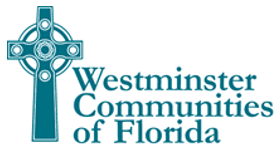FOR IMMEDIATE RELEASE
October 29, 2020
CONTACT: Tara Perkins, AVP | 203-418-9049 | [email protected]
HJ Sims Completes Third Financing for Client, Refinances Outstanding Debt, Generates Significant Interest Rate Savings
FAIRFIELD, CT– HJ Sims (Sims), a privately held investment bank and wealth management firm founded in 1935, is pleased to announce the successful closing of a September 2020 financing in the amount of $77,000,000 for Casa de las Campanas (Casa), a Life Plan Community in San Diego, CA. Casa is managed by Life Care Services, and LCS Development serves as the developer.
Casa has worked with Sims to secure financing for its multi-phased Master Plan, which included renovation and expansion of its facilities, including new skilled nursing facilities, independent living apartments and memory care beds.
In 2014, Sims secured bank financing through City National Bank (CNB) for Casa’s Phase I. Sims negotiated the Phase II financing terms with CNB in 2017. Structuring the financing with CNB and Cal Mortgage, Sims worked to secure $39 million in direct bank placement bonds from CNB for Casa’s Phase II expansion. Casa applied $7.1 million of equity and transferred $5.5 million of unused Phase I proceeds towards Phase II. Sims and Casa then explored refinancing options for the outstanding Series 2010 bonds and its outstanding bank debt to reduce Casa’s overall cost of capital.
In 2017, the passage of the Tax Cuts and Jobs Act eliminated the ability for Casa to advance refund its outstanding Series 2010 bonds. Sims and CNB considered pricing a forward starting tax-exempt refinancing, helping Casa to lock in an interest rate to refinance its outstanding Series 2010 bonds, 2014 Bank Debt, the outstanding portion of the 2017 bonds and fund the remaining undrawn portion of the 2017 bonds. COVID-19 roiled markets and bank financing, therefore the financing plan evolved from a forward refunding to a current refunding, which was optimized at a $77 million credit commitment offered by CNB, realizing significant cash flow savings.
With the closing of the refinancing, Casa refinanced outstanding legacy debt, as well as debt related to their phased expansion. Casa anticipates annual cash flow savings on existing debt of $2.45 million through 2035, with net present value savings of $12 million and 18.3% of refunded debt over the 30-year amortization.
“Once again, working with the Sims’ team provided the best solution to meet our refinancing objectives. Sims continues to be our trusted financial advisor, helping us evaluate opportunities to improve upon our current debt structure while ensuring Casa is well-positioned to access future financings related to our Master Plan. Sims provided valuable insight and guidance on the refinancing scenarios to our Management Team and Board. The refinancing was successfully structured to eliminate the previously required Cal Mortgage insurance and related debt service reserve fund. With the new low interest rate, Casa is able to save millions and drastically improve our cash flow and future debt capacity. Sims went beyond the call of duty, and presented industry guidelines and insights at our Board Retreats to ensure we accomplish our goals and maintain our mission,” said Dave Johnson, CFO, Casa de las Campanas.
Financed Right® Solutions—Aaron Rulnick: 301-424-9135, [email protected] |
Brady Johnson: 949-558-8297, [email protected].
ABOUT HJ SIMS: Founded in 1935, HJ Sims is a privately held investment bank and wealth management firm. Headquartered in Fairfield, CT, Sims has nationwide investment banking, private wealth management and trading locations. Member FINRA, SIPC. Testimonials may not be representative of another client’s experience. Past performance is no guarantee of future results. Facebook, LinkedIn, Twitter, Instagram.
###











